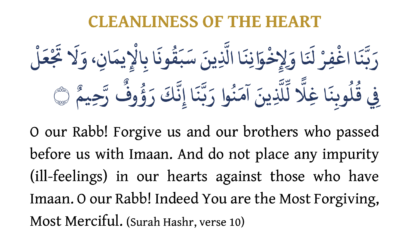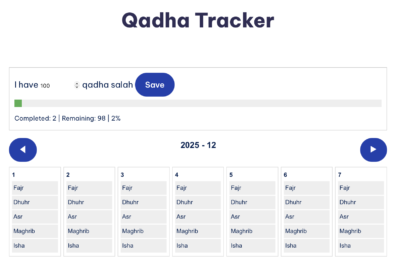The Excellence of Hiding Good Deeds
In Islam, hiding good deeds, Concealing acts of charity, remembrance, and worship fortifies the heart, guards against pride, and builds a private connection with Allah. The examples of Rasul Allah ﷺ, the companions, and the early scholars serve as reminders that true success lies in worshiping Allah sincerely, away from public scrutiny. We pray that a portion of our deeds are kept hidden, seeking only Allah’s pleasure and the reward of His eternal shade on the Day of Judgment is sought. Let us read some of the Excellence of Hiding Good Deeds
Book of deeds as mentioned in Quran.
Hasten to do good deeds before you are undertaken by one of the seven afflictions.
The Virtue of Hidden Charity
One of the seven types of people who will receive Allah’s shade on the Day of Judgment is:
“A person who gives charity so secretly that his left hand does not know what his right hand has given.”
(Bukhari, 1423)
This hadith beautifully illustrates the value of performing charitable acts in such a discreet manner that even one’s closest family members may be unaware. This act nurtures sincerity, focusing the heart solely on Allah’s pleasure rather than on gaining favor or praise from others.
Remembering Allah in Seclusion
Rasul Allah ﷺ also mentioned another form of concealed worship:
((ورجل تَصَدَّقَ بِصَدَقَةٍ فَأَخْفَاهَا حَتَّى لاَ تَعْلَمَ شِمَالُهُ مَا تُنْفِقُ يَمِينُهُ))
“A person who remembers Allah in seclusion, and his eyes get flooded with tears.”
(Bukhari, 1423)
In moments of seclusion, a sincere believer can connect with Allah in deep devotion. This form of private remembrance, where tears flow out of love and fear of Allah, reflects an intimate and profound faith, leading to spiritual closeness and tranquility.
The Prophet ﷺ’s Advice on Concealing Good Deeds
Rasul Allah ﷺ advised:
((من استطاع منكم أن يكون له خبء من عمل صالح فليفعل))
“Whoever of you is able to keep a share of good deeds hidden, then let him do so.”
(Authenticated by Al-Albani in Sahih al-Jami’, 5/240)
This encouragement highlights the importance of developing a personal relationship with Allah that is free from public attention. By concealing some of our deeds, we create an exclusive bond with Allah, which enhances sincerity and strengthens faith.
Insights from the Companions and Scholars
Az-Zubair ibn Al-‘Awwam (radi allahu anhu)
Az-Zubair ibn Al-‘Awwam radi allahu anhu said:
«اجعلوا لكم خبيئة من العمل الصالح كما أن لكم خبيئة من العمل السيئ».
“Keep a share of good deeds hidden, just as you keep a share of bad deeds hidden.”
(Az-Zuhd, Imam Ahmad)
Just as one avoids publicizing their shortcomings, Az-Zubair radi allahu anhu advised preserving the privacy of good deeds, ensuring these acts remain untainted by the influence of others’ opinions.
The Approach to Concealing Deeds
Ibrahim Al-Harbi (rahimahullah)
«كانوا يستحبّون أن يكون للرجل خبيئة من عمل صالح لا تعلم به زوجتُه ولا غيرها».
“They (the Salaf) would encourage one to keep a portion of righteous deeds that neither his wife nor anyone else knew about.”
(Tarteeb al-Madarik, 2/51)
The early generations believed in safeguarding their spiritual integrity by performing hidden acts of devotion, reinforcing that such privacy increases sincerity and deepens one’s relationship with Allah.
Imam Malik (rahimahullah)
Imam Malik said:
«مَن أحب أن يَفْتَحَ له فُرجةً في قلبه، وينجو من غمرات الموت، وأهوال يوم القيامة؛ فليكن في عمله في السر أكثر منه في العلانية»
“Whoever desires to open a window (of light) in his heart and to be saved from the agonies of death and the terrors of the Day of Judgment, let him increase his (good) deeds in private more than in public.”
(Tarteeb al-Madarik, 2/51)
Imam Malik’s advice reflects the transformative power of hidden worship, suggesting that private devotion alleviates the anxieties of the afterlife and illuminates one’s heart with divine guidance.
The Value of Sincerity in Hidden Deeds
Sufyan Ath-Thawri (rahimahullah)
Sufyan Ath-Thawri rahimullah explained:
«كل شيء أظهرته من عملي فلا أعده شيئًا لعجز أمثالنا عن الإخلاص إذا رآه الناس»
“Any of my deeds that I make public, I consider to be of no value, for people like us are incapable of sincerity when others see our actions.”
Sufyan Ath-Thawri rahimullah recognized the challenge of maintaining sincerity when deeds are visible. By concealing one’s righteous actions, a person safeguards their intention and seeks reward solely from Allah.
Imam Ash-Shafi’ee’s Reflection on Isolation
Imam Ash-Shafi’ee advised:
«من أحبّ أن يفتح الله قلبه ويرزقه الحكمة فعليه بالخلوة وقلّة الأكل وترك مخالطة السفهاء وبعضِ أهل العلم الذين ليس معهم إنصاف ولا أدب»
“Whoever loves that Allah opens his heart and grants him wisdom, let him seclude himself, eat less, and avoid associating with the foolish and those scholars who lack fairness and manners.”
(Manaqib al-Shafi’i, Bayhaqi, 2/172)
Isolation allows for self-reflection, nurturing sincerity and wisdom. By distancing oneself from distractions, a person can focus solely on the remembrance of Allah.
Bishr ibn Al-Harith rahimullah on Avoiding Fame
Bishr ibn Al-Harith rahimullah said:
«لا أعلم رجلًا أحب أن يُعرف إلا ذهب دينه وافتضح»
“I do not know of anyone who loved to be known except that his religion was lost and he was exposed.”
He further added:
«لا يجد حلاوة الآخرة رجل يحب أن يعرفه الناس»
“No one will taste the sweetness of the Hereafter if he loves to be known by people.”
These statements highlight the importance of humility and the dangers of seeking recognition. Hidden good deeds preserve the purity of one’s faith, ensuring that worship remains for Allah’s sake alone.
Join our Tafsir class or enroll your kids to Quran Tafsir or check theislamiccourses.com
Discover more from Islam Hashtag
Subscribe to get the latest posts sent to your email.





